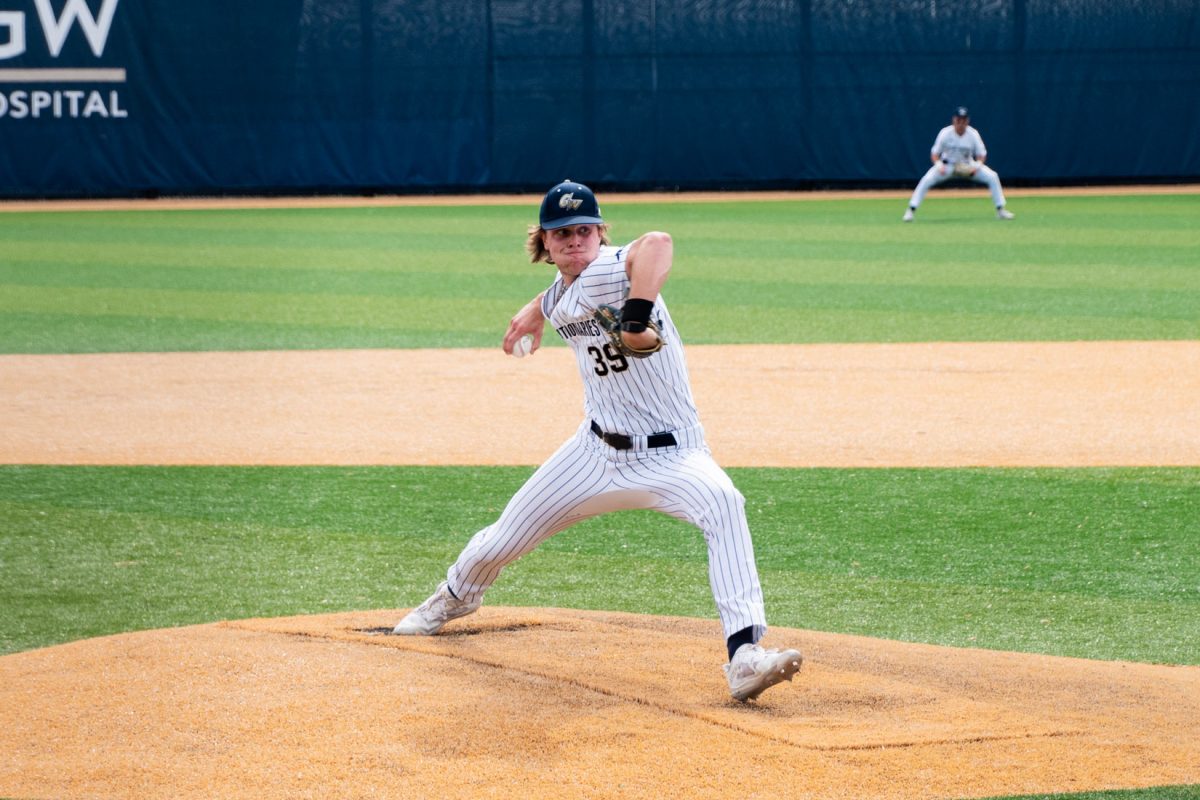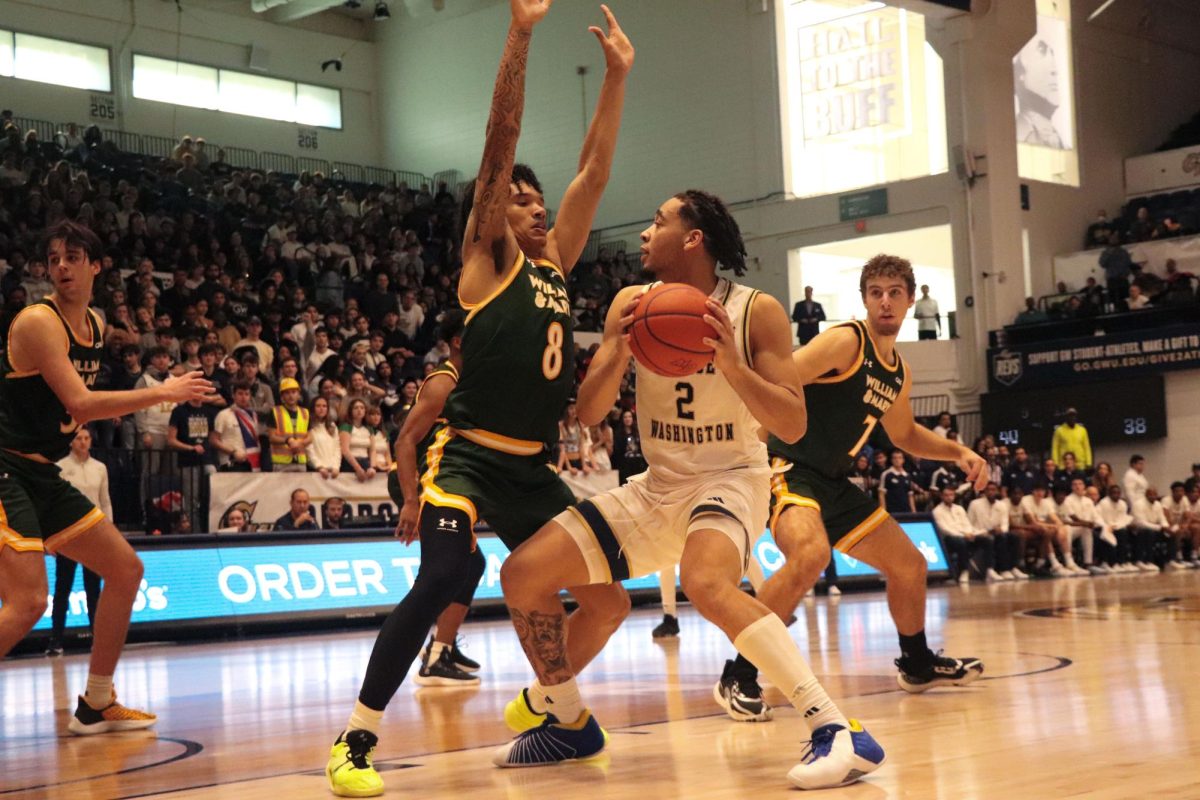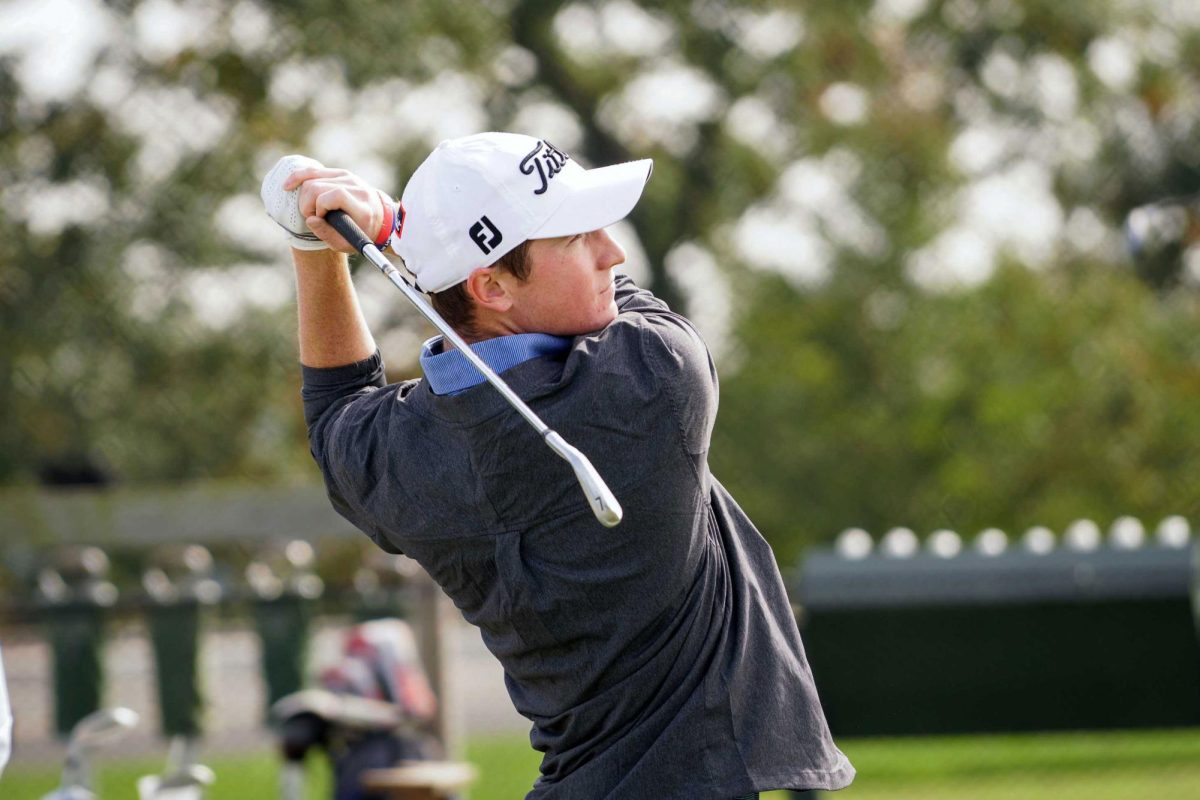Wearing his “Final Four” sweater vest, GW athletic director Jack Kvancz sat back in his chair, legs crossed, and told the story of his greatest athletic experience.

GW’s athletic director has been an administrator for more than 24 years and played in the 1967 NCAA Regional Finals for Boston College and head coach Bob Cousy.
But in all that time, nothing Kvancz had seen could match the experience of participating in the NCAA’s selection weekend a month ago. Kvancz was one of nine athletic administrators selected for the NCAA committee that decided the NCAA Tournament’s 64 men’s basketball teams in Kansas City, Mo.
“You’re part of the 64 teams that are getting in and the many others that are not,” Kvancz said.
But while picking the teams was difficult, one of the hardest parts was he couldn’t participate when the committee debated GW’s fate.
When GW came to the board, Kvancz was required to leave. He moved across the hall to another room dominated by Direct-TV and the trays of cold cuts and soda.
“I had a good idea we had made it,” Kvancz said. “But I have no idea what the vote was.”
With a Ratings Percentage Index of 45, he left the selection room with a good idea that the other eight committee members would select the Colonials for the field of 64. Kvancz said despite the excitement, it was necessary that all nine members approach the selection process without bias.
“You’re so engrossed in doing the right thing,” Kvancz said. “You have to drop all biases that you have at the door and focus on what you’re doing.”
Seven of the nine committee members must approve a team before it is placed in the tournament. With Kvancz sitting outside when the vote for GW took place, GW received no fewer than six votes for its strength of schedule and quality wins.
As a committee member, Kvancz was required to oversee one of the first and second round regional sites, but the rules stated he could not follow GW to Orlando, Fla. Instead, he went to Charlotte, N.C., one of the East Region sites.
For example, Kvancz had to make sure each bench had exactly 17 chairs. He also was responsible for coordinating the drug testing. He had to attend every practice and inform the teams of the rules in the tournament.
“It was my job to maintain gamesmanship,” Kvancz said. “I was responsible for logos and determining whether mascots were eligible to go into the stands.”
Kvancz followed Duke University to the East Regional Finals in East Rutherford, N.J., where he dealt with a hotel scheduling problem between two schools preparing to play each other.
“The Duke cheerleaders had been booked into the same hotel as Temple,” Kvancz said. “So we had to move them into the hotel Southwest Missouri State (University) had occupied.”
Looking back, Kvancz said he is pleased three of the four teams seeded No. 1 by the committee reached the “Final Four.”
“We believe when we left Kansas City that we had done a good job,” Kvancz said.
The whole time he was in Kansas City, Kvancz was not allowed to use the phone unless he needed to talk to his wife.
“There was a password for your spouse to call you,” Kvancz said. “But I didn’t talk to her.”
When Kvancz’s story had ended, he stood, stretched and smiled.
“This was the greatest thing I’ve ever done,” he said.







